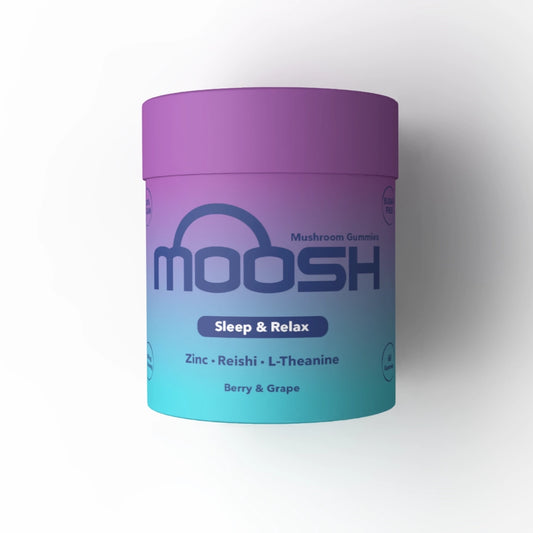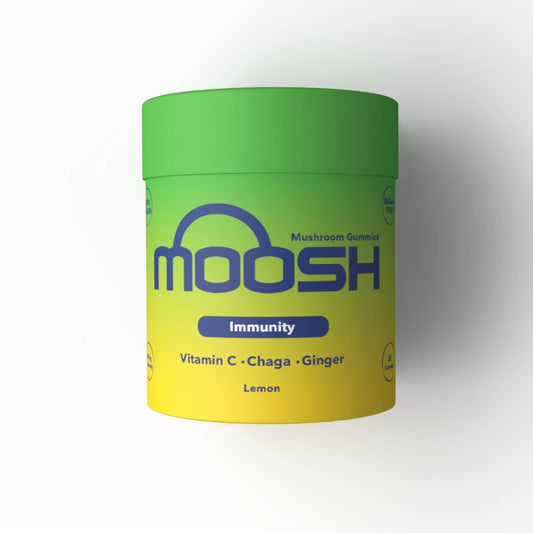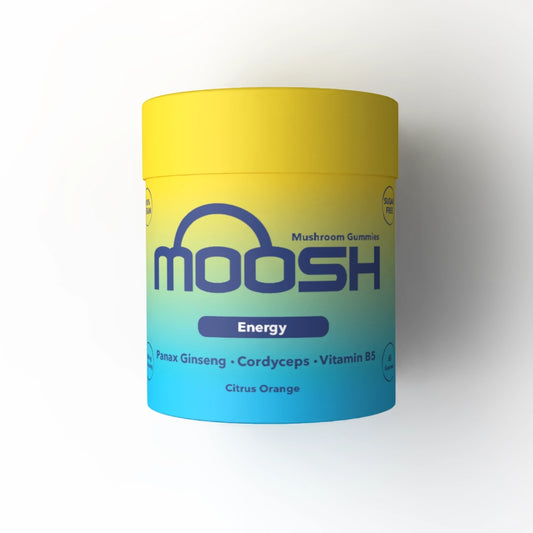
Apple cider vinegar (ACV) has gained significant popularity in recent years for its purported health benefits and versatile applications. From culinary uses to skincare remedies, ACV has found its way into many households as a staple item. But what exactly is apple cider vinegar, and how can you incorporate it into your daily routine effectively? Let's explore the wonders of this tangy elixir.
What is it?
Apple cider vinegar is crafted from fermented apple juice, undergoing a simple two-step fermentation process. First, crushed apples mingle with yeast, which naturally converts the sugars into alcohol. Later, acetobacter is introduced to the alcohol solution, transforming it into acetic acid, the key component in vinegar. This natural transformation gives apple cider vinegar its unique taste and makes it a versatile ingredient in various culinary and wellness applications.
Types of ACV
There are two main types of apple cider vinegar: filtered and unfiltered. Filtered ACV, often found in grocery stores, is clear and devoid of sediment. In contrast, unfiltered ACV retains the 'mother,' a colony of beneficial bacteria and enzymes formed during fermentation. The mother is responsible for many of ACV's health benefits and can also be obtained in the form of pills, powders, or gummies.
Is it Good for You?
While apple cider vinegar (ACV) is often praised for its potential health benefits, it's important to note that scientific evidence supporting many of these claims is limited. Although some studies suggest potential advantages, more robust research is necessary to fully confirm these assertions. Nevertheless, ACV contains various vitamins and minerals that contribute to its nutritional value. These include vitamin C, known for its antioxidant properties and support for the immune system, vitamin E, which promotes skin health and cellular function, and vitamin A, crucial for vision and immune function. Additionally, ACV provides vitamins B1, B2, and B6, essential for energy metabolism and nervous system health, along with biotin, folic acid, niacin, and pantothenic acid, which play vital roles in various bodily functions. While ACV's nutritional content is notable, further research is needed to determine its complete potential in promoting health and well-being. As with any dietary supplement, it's advisable to incorporate ACV into a balanced diet and consult with a healthcare professional before making significant changes to your nutritional regimen.
Benefits
Weight Management: Apple cider vinegar (ACV) has garnered attention for its potential role in weight management. Studies suggest that the acetic acid in ACV may promote a feeling of fullness, leading to reduced calorie intake throughout the day. By helping individuals feel satisfied with smaller portions, ACV could contribute to weight loss efforts when combined with a balanced diet and regular exercise routine. While more research is needed to fully understand its mechanisms, incorporating ACV into a healthy lifestyle may support weight management goals.
Blood Sugar Control: For individuals with diabetes or insulin resistance, maintaining stable blood sugar levels is crucial for overall health. ACV has shown promise in improving insulin sensitivity and reducing blood sugar spikes after meals. The acetic acid in ACV may help slow the absorption of carbohydrates, preventing rapid increases in blood glucose levels. By incorporating ACV into meals or consuming it before high-carb meals, individuals may experience more stable blood sugar levels throughout the day, reducing the risk of complications associated with diabetes and insulin resistance.
Heart Health: The health of our cardiovascular system is paramount for overall well-being, and ACV may play a role in supporting heart health. Acetic acid, a key component of ACV, has been linked to potential benefits such as lowering cholesterol and blood pressure levels. By reducing the levels of LDL cholesterol, often referred to as "bad" cholesterol, and regulating blood pressure, ACV may help decrease the risk of heart disease and stroke. Incorporating ACV into a heart-healthy diet rich in fruits, vegetables, and whole grains may further enhance its cardiovascular benefits.
Antimicrobial Properties: Beyond its culinary and health applications, ACV boasts antimicrobial properties that make it a versatile natural remedy. The acetic acid in ACV creates an acidic environment that inhibits the growth of certain bacteria and fungi. This property has been utilised for centuries in food preservation and as a household cleaner. From disinfecting surfaces to treating minor skin infections, ACV's antimicrobial properties offer a chemical-free alternative for maintaining cleanliness and promoting overall hygiene in the home.
Digestive Health: Digestive discomfort such as indigestion and bloating can disrupt daily life and affect overall well-being. Some individuals turn to ACV as a natural remedy to alleviate these symptoms and support digestive health. Consuming diluted ACV before meals may help stimulate the production of stomach acid, facilitating the breakdown of food and easing digestion. Additionally, the acetic acid in ACV may help balance pH levels in the digestive tract, reducing the risk of acid reflux and promoting gastrointestinal comfort. While individual responses may vary, incorporating ACV into a well-rounded diet and lifestyle may contribute to improved digestive function and overall wellness.
Other Uses?
Apart from its notable health benefits, apple cider vinegar (ACV) boasts a wide array of applications beyond the realm of wellness:
Hair Care: ACV serves as a versatile natural remedy for hair care. When used as a hair rinse, ACV can help restore shine by removing residue from hair products and hard water minerals. Its acidic nature helps to seal the hair cuticle, resulting in smoother, more manageable hair. Regular use of ACV rinses may also alleviate scalp conditions such as dandruff and itchiness, promoting healthier hair growth overall.
Skin Care: Diluted apple cider vinegar offers numerous benefits for skincare enthusiasts. Thanks to its acidic pH, ACV helps rebalance the skin's natural pH levels, which can be disrupted by harsh cleansers and environmental factors. This balance is crucial for maintaining healthy skin barrier function and preventing issues like dryness and irritation. Additionally, ACV's antimicrobial properties make it effective against acne-causing bacteria, while its astringent properties help to tighten pores and reduce excess oil production. Furthermore, ACV can provide relief for minor skin irritations, such as sunburns and insect bites, when applied topically in diluted form.
Household Cleaning: ACV's antimicrobial properties extend beyond personal care to household cleaning applications. As a natural alternative to chemical-laden cleaners, diluted ACV can effectively disinfect surfaces and eliminate bacteria and viruses. Whether used in the kitchen to sanitise countertops and cutting boards or in the bathroom to combat mold and mildew, ACV offers a safe and eco-friendly cleaning solution. Additionally, ACV can help remove stubborn stains and odours from fabrics and upholstery when used as a pre-soak or laundry additive. By harnessing the power of ACV, households can maintain a clean and healthy environment without exposing themselves to harmful chemicals.
How Do You Use ACV?
Incorporating apple cider vinegar (ACV) into your daily routine can be a simple yet rewarding endeavour. Here are several ways to make ACV a part of your everyday life:
Dilute it: To mitigate its acidity and make it more palatable, dilute 1–2 tablespoons of ACV in 8 ounces of water or juice. This diluted mixture can be consumed as a refreshing beverage throughout the day, providing a subtle tangy flavour while delivering potential health benefits.
In Salads: Elevate the flavour profile of your salads by using ACV as a tangy salad dressing or marinade. Simply combine ACV with olive oil, honey, mustard, and your favourite herbs and spices to create a delicious vinaigrette. Drizzle it over fresh greens, vegetables, or grilled meats to add a burst of flavour and acidity to your dishes.
In Beverages: Kickstart your day with a revitalising beverage infused with the goodness of ACV. Add a splash of ACV to your morning smoothie or herbal tea for an extra health boost. The acidity of ACV pairs well with fruity or herbal flavours, enhancing the taste and nutritional value of your favourite beverages.
Topically: Extend the benefits of ACV beyond internal consumption by incorporating it into your skincare and haircare routine. Diluted ACV can be applied topically to hair, skin, or nails as needed. Use it as a natural hair rinse to restore shine and remove product build-up, or apply it to your skin to balance pH levels, reduce acne, and soothe irritations. Additionally, ACV can strengthen nails and promote healthy cuticles when used as a nail soak or treatment.
By integrating ACV into various aspects of your daily life, you can harness its potential health benefits while exploring its versatile culinary and personal care applications. Experiment with different methods of incorporating ACV to discover what works best for you and enjoy the tangy goodness it brings to your routine.
Dosages
Determining the appropriate dosage of apple cider vinegar (ACV) for your needs requires careful consideration and attention to your body's response. While there is no universally recommended dosage, many experts suggest starting with 1–2 tablespoons of ACV per day, diluted in water or another beverage. Begin slowly to allow your body to acclimate to ACV's acidity and potential effects, starting with smaller amounts, such as 1 teaspoon diluted in water, can help gauge your tolerance and minimise the risk of adverse reactions. Pay close attention to how your body responds, and if you notice any adverse effects, such as stomach upset or throat irritation, consider reducing the dosage or discontinuing use temporarily. Gradually increase the dosage as needed, up to 1–2 tablespoons per day, while listening to your body's signals and adjusting accordingly. Consulting with a healthcare professional before proceeding, especially if you have underlying health conditions, can provide personalised guidance based on your medical history and help determine the most appropriate dosage and usage method for your individual needs. Remember, moderation and mindful consumption are key to maximising the advantages of ACV while minimising any potential risks.
Risks
While apple cider vinegar (ACV) is generally considered safe for most individuals when consumed in moderation, it's essential to be aware of potential risks associated with excessive intake. Overconsumption of ACV may lead to digestive discomfort, including symptoms such as bloating, gas, and stomach upset. Furthermore, the acidic nature of ACV can erode tooth enamel over time, potentially increasing the risk of dental issues such as tooth decay and sensitivity. Additionally, frequent and high-volume consumption of ACV may contribute to potassium depletion, which could be particularly concerning for individuals with existing medical conditions such as gastroparesis or low potassium levels. Therefore, it's advisable for individuals with these medical conditions to consult their healthcare provider before incorporating ACV into their regular routine. By exercising moderation and seeking professional guidance when necessary, individuals can enjoy the potential benefits of ACV while minimising the risk of adverse effects on their health.
Shelf Life
When stored in a cool, dark place away from direct sunlight, apple cider vinegar has an indefinite shelf life due to its acidic nature. However, for the best quality and flavour, it's recommended to use ACV within two years of opening the bottle.
In conclusion, while apple cider vinegar may not be a magical cure-all, it certainly offers several potential health benefits and practical uses in daily life. By incorporating ACV into your routine wisely and in moderation, you can explore its diverse applications and enjoy its tangy goodness. Remember, balance and moderation are key to reaping the rewards of this ancient elixir.






